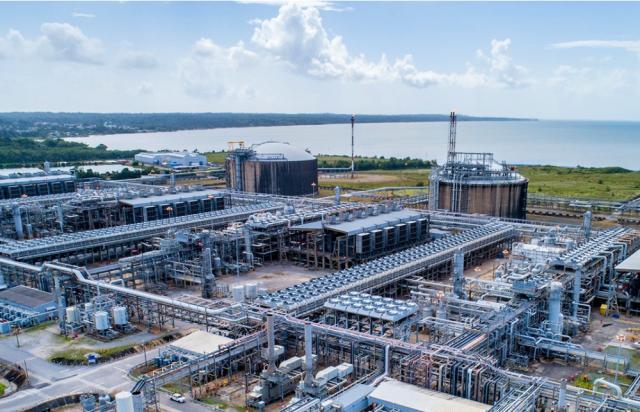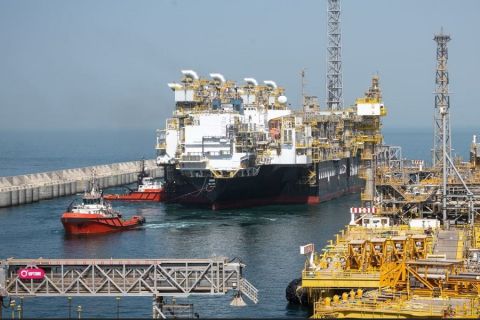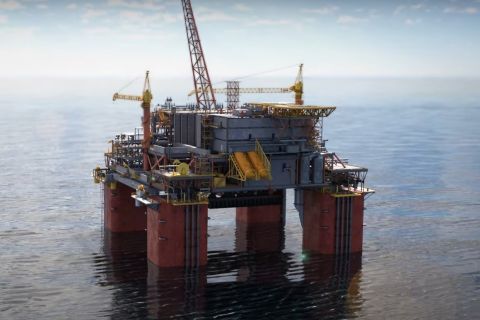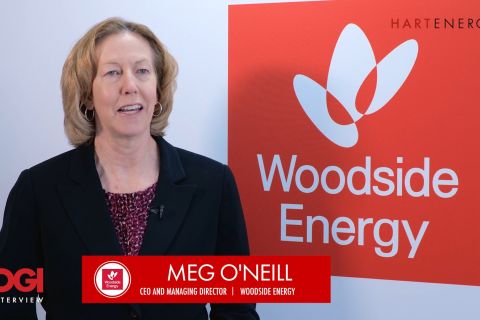
Ongoing discussions between the government and key shareholders have yet to resolve an impasse about a potential restructuring to benefit all parties. (Source: Atlantic LNG)
Trinidad and Tobago’s four-train Atlantic LNG liquefaction complex continues to operate without Train 1, which has been offline for 18 consecutive months.
Train 1, which has a 3 million tonnes per annum (mtpa) capacity or 20% of the complex’s total installed 14.8 mtpa capacity, initially went offline in December 2020. A year-and-a-half later, the train was still offline in May, according to the monthly bulletin from the twin-island country’s Ministry of Energy and Energy Industries published on July 22.
Ongoing discussions between the government and key shareholders have yet to resolve an impasse about a potential restructuring to benefit all parties.
The complex is operating at 80% of its installed capacity due to the continued operations of Trains 2-4. It produced about 1.5 million cubic meters in May, up 31% compared to the prior month and up 17% compared to May 2021 yet production is still far from its peak potential.
Trinidad’s LNG sector as well as the methanol and ammonia exporting sectors continue to feel the impacts of a scarcity of gas supply. An unattractive fiscal regime continues to impact gas producers with operations in the Caribbean country from BP to BHP and Shell, among others, all of whom have struggled to drastically boost reserves and production to offset natural field declines.
RELATED:
Trinidad Eyes Production Growth and Bid Rounds
Train 1 Impasse
The government, represented by the ministry, has been in discussions for over a year with shareholders in Train 1 including Shell (46% ownership interest), BP (34%), the National Gas Co. (NPC) of Trinidad and Tobago (10%) and Chinese Investment Corp. (10%).
Discussions regarding the future of the train, which commenced commercial operations in March 1999, include plans to bring it back online while also exploring a more attractive partnership scheme for the entire complex that appeases the two largest shareholders.
The government has already signed a heads of agreement with shareholders for “its restructuring with the objective of improving its efficiency, competitiveness and long-term viability,” ministry head Stuart Young said in June during a keynote address at the Trinidad and Tobago Energy Conference. Young said the government was still in talks with shareholders “on definitive terms which include a new and extended term, third party access and pricing formulae that are market reflective.”
A final decision regarding a potential restructuring was expected in July, the minister said on the sidelines of CERAweek in Houston earlier this year.
Atlantic LNG was the first liquefaction complex to operate in the Atlantic Basin when Train 1 started operations, according to details on Atlantic’s website. Trains 2 and 3 started operations in 2002 and 2003, respectively. The trains have a capacity of 3.3 mtpa each and partner Shell (57.5%) and bp (42.5%). Train 4 started operations in 2005 and has a capacity of 5.2 mtpa. Partners in the train include Shell (51.11%), BP (37.78%) and NGC (11.11%).
May Gas Supply
Trinidad’s gas supply reached 2.55 Bcf/d in May, according to the ministry, up 9% compared to the prior month and up 3% compared to May 2021. Trinidad’s gas production last peaked at 4.52 Bcf/d in February 2010 while in the same year it averaged 4.33 Bcf/d, according to ministry data.
RELATED:
Trinidad’s Natural Gas Production Continues Downward Trend
By 2024, Trinidad’s gas production could reach 3.28 Bcf/d with the addition of production from numerous projects slated to come online between now and then, Young told the conference attendees last month.
Recommended Reading
BP: Gimi FLNG Vessel Arrival Marks GTA Project Milestone
2024-02-15 - The BP-operated Greater Tortue Ahmeyim project on the Mauritania and Senegal maritime border is expected to produce 2.3 million tonnes per annum during it’s initial phase.
Deepwater Roundup 2024: Offshore Australasia, Surrounding Areas
2024-04-09 - Projects in Australia and Asia are progressing in part two of Hart Energy's 2024 Deepwater Roundup. Deepwater projects in Vietnam and Australia look to yield high reserves, while a project offshore Malaysia looks to will be developed by an solar panel powered FPSO.
Deepwater Roundup 2024: Offshore Europe, Middle East
2024-04-16 - Part three of Hart Energy’s 2024 Deepwater Roundup takes a look at Europe and the Middle East. Aphrodite, Cyprus’ first offshore project looks to come online in 2027 and Phase 2 of TPAO-operated Sakarya Field looks to come onstream the following year.
Tech Trends: Halliburton’s Carbon Capturing Cement Solution
2024-02-20 - Halliburton’s new CorrosaLock cement solution provides chemical resistance to CO2 and minimizes the impact of cyclic loading on the cement barrier.
The OGInterview: How do Woodside's Growth Projects Fit into its Portfolio?
2024-04-01 - Woodside Energy CEO Meg O'Neill discusses the company's current growth projects across the globe and the impact they will have on the company's future with Hart Energy's Pietro Pitts.






